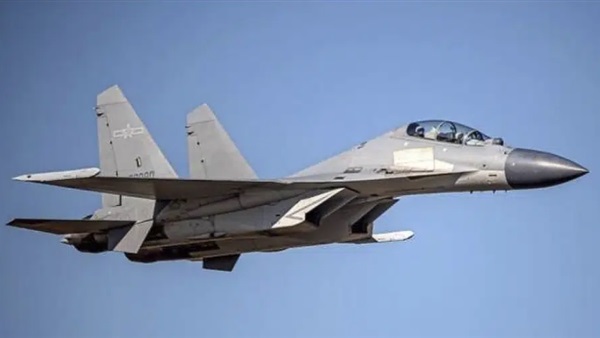US to sell Taiwan anti-tank system amid rising China threat

The U.S. State Department has approved the sale of an anti-tank mine-laying system to Taiwan amid the rising military threat from China.
The department on Wednesday said the Volcano system and all related equipment would cost an estimated $180 million.
It’s capable of scattering anti-tank and anti-personnel mines from either a ground vehicle or helicopter. The announcement indicated Taiwan would be buying the vehicle-borne version, the kind of general-use weapon many experts believe Taiwan needs more of to dissuade or repel a potential Chinese invasion.
To advertise that threat, China’s military sent 71 planes and seven ships toward Taiwan in a 24-hour display of force directed at the self-ruled island it claims is its own territory, Taiwan’s Defense Ministry said Monday.
China’s military harassment of Taiwan has intensified in recent years, along with rhetoric from top leaders that the island has no choice but to accept eventual Chinese rule.
That has seen the ruling Communist Party’s increasingly powerful military wing, the People’s Liberation Army, send planes or ships toward the island on a near-daily basis.
Between 6 a.m. Sunday and 6 a.m. Monday, 47 of the Chinese planes crossed the median line of the 160 kilometer (100 mile) -Taiwan Strait, an unofficial boundary once tacitly accepted by both sides, according to the Defense Ministry.
That came after China expressed anger at Taiwan-related provisions in a U.S. annual defense spending bill in what has come to be a standard Chinese practice.
China also conducted large-scale live-fire military exercises in August in response to U.S. House Speaker Nancy Pelosi’s visit to Taiwan. Beijing views visits from foreign governments to the island as de facto recognition of Taiwan as independent and a challenge to China’s claim of sovereignty.
The PLA would continue to launch such missions until Taiwan’s pro-independence Democratic Progressive Party ceases “constantly provoking confrontation and enmity between the two sides,” Chinese Defense Ministry spokesperson Col. Tan Kefei said at a monthly briefing Thursday.
“The PLA always ... resolutely defends national sovereignty and territorial integrity,” Tan said.
While Washington has only unofficial ties with Taiwan in deference to Beijing, those include robust defense exchanges and military sales.
In its announcement, the State Department said the Volcano sale “serves U.S. national, economic, and security interests by supporting the recipient’s continuing efforts to modernize its armed forces and to maintain a credible defensive capability.”
It said Taiwan would have “no difficulty absorbing this equipment into its armed forces,” and that the sale would “not alter the basic military balance in the region.”
Analysts differ over what Taiwan’s defense priorities should be, with some calling for big-ticket items such as advanced fighter jets.
Others argue for a more flexible force, heavily armed with land-based missile systems to target enemy ships, planes and landing craft. China’s overwhelming numerical advantage in personnel and equipment give Taiwan little choice but to opt for that more “asymmetric” approach, they say.





